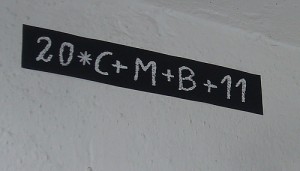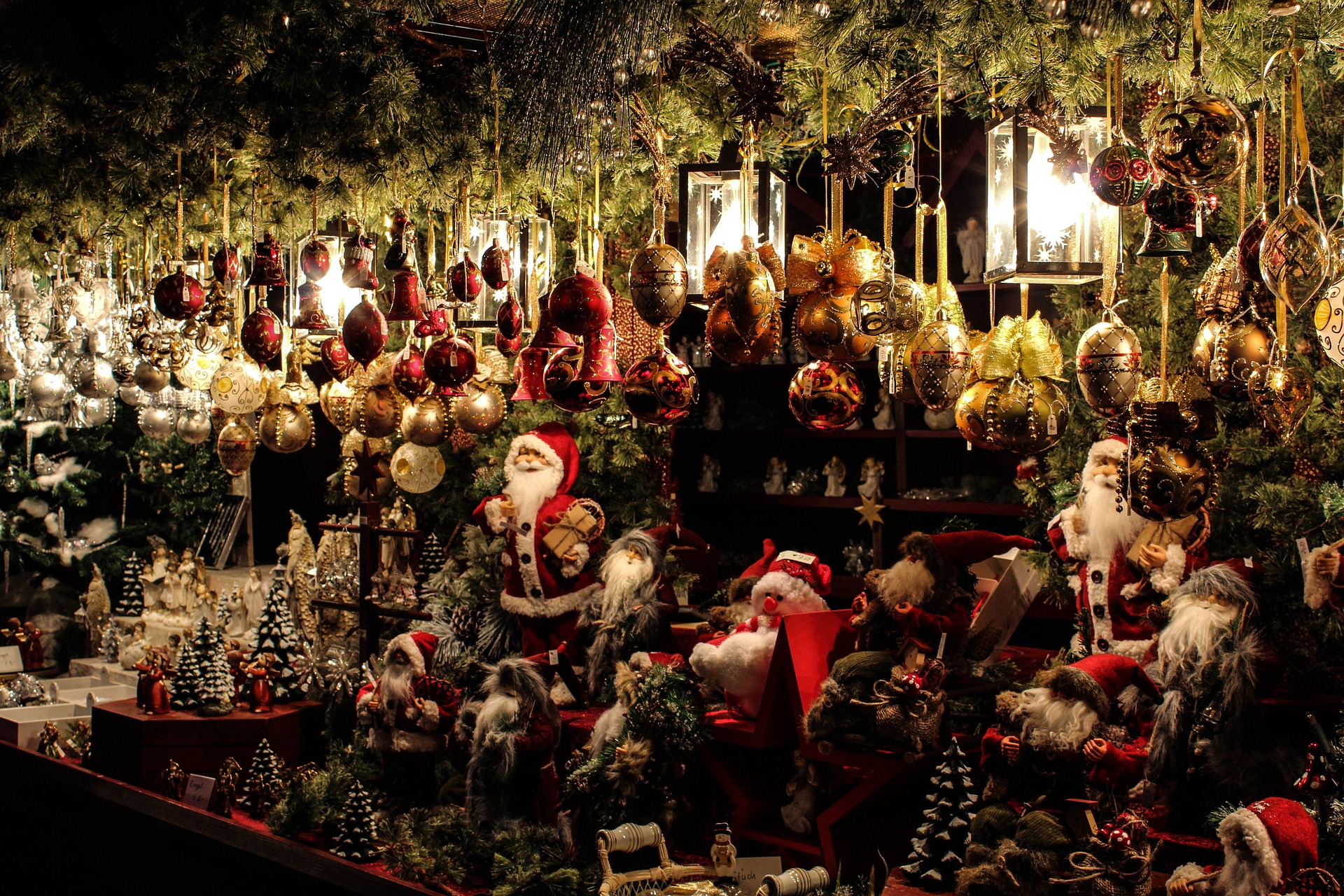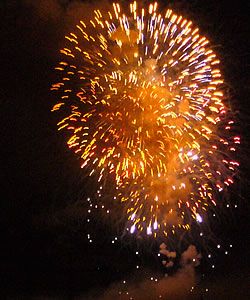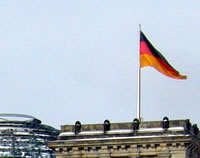Public holidays in Germany are particular days when employers are obliged to give their employees the day off to commemorate a certain religious or secular event. Businesses, banks and shops remain closed on these days, though restaurants are allowed to be open. Which days are designated holidays in Germany is determined by state law, so shops might be closed in one state while they remain open in another.
I have decided to split this article into two parts: Part 1 will deal only with the more important holidays in Germany, celebrated nation-wide in all states. Part 2 will talk about the remaining German holidays, which some states celebrate and some don’t.
Holidays in Germany which are celebrated in all states
New Year’s Day (Neujahrstag) is on January 1st and celebrates the beginning of the new year with fireworks. On New Year’s Eve (Silvester in German), December 31st, people either meet with friends to celebrate the occasion or go to one of the many parties. The biggest public party takes place in Berlin.
Easter (Ostern) commemorates the crucifixion, death and resurrection of Jesus Christ. There are two holidays in Germany commemorating the event: The first is Good Friday (Karfreitag), the day of the crucifixion, and the second is Easter Monday (Ostermontag), the day after the resurrection. Easter Sunday itself is not listed as such, because it is on a Sunday and businesses remain closed anyways. Somewhat unique for Easter in Germany are the Easter fires.
Labor Day (Tag der Arbeit) is always on May 1st and an extension of the efforts of the Labor Movement into a public holiday. Unions, Labor Parties and associated organizations use the day to reinforce demands for fair working conditions and just payment and remember the previous struggles of the working class.
Ascension Day (Christi Himmelfahrt) is 39 days after Easter Sunday and commemorates the Ascension of Jesus into heaven. Ascension Day in Germany is also Father’s Day.
Whit Monday (Pfingstmontag) is 50 days after Easter. It is the day after Pentecost when the Holy Spirit descended from heaven to the Twelve Apostles and disciples of Jesus after his resurrection. Like Easter Sunday, Pentecost itself is always on a Sunday as well, so it is automatically a public holiday.
German Unity Day (Tag der Deutschen Einheit) is the only of the holidays in Germany defined by federal law. It takes place on October 3rd each year and is the anniversary of German Reunification in 1990. It is the day when East and West Germany were formally reunited and brought the Cold War to an end.
Christmas Day (Weihnachtstag), December 25th, is the day after Christ’s birth and one of the most important holidays in Germany. Families usually visit church on Christmas Eve and then return home to have a nice dinner, while children find their presents under the Christmas tree. The day after Christmas Day (Zweiter Weihnachtsfeiertag), also called St Stephen’s Day, is also a public holiday.
German holidays celebrated in some states
Epiphany (Heilige Drei Könige) is on January 6th and commemorates the visit of the three Magi after the birth of Jesus. Throughout the day children, each dressed as one of the three Wise Men, will go from door to door and recite a particular song. They are called Sternsinger (star singers), because of the star the three Magi followed to find Baby Jesus. The children are generally given some candy and collect money for the less fortunate and in turn will leave a chalk mark on the door as token of good luck for the remaining year. Epiphany is a public holiday in Baden-Württemberg, Bavaria and Saxony-Anhalt.

Corpus Christi (Fronleichnam) is one of the Catholic German holidays. Unlike Epiphany, it is not related to Jesus’ life itself, but is simply a holy day to remember the miracle of the Body of Christ (Eucharist, Lord’s supper), a sacrament and rite observed in most Catholic masses. It is celebrated 60 days after Easter Sunday, so it usually occurs some day in June, in the following states: Baden-Württemberg, Bavaria, Hesse, North Rhine-Westphalia, Rhineland-Palatinate and Saarland.
Assumption Day (Mariä Himmelfahrt) is another of the Catholic German holidays, commemorating the assumption of Mary into heaven after her death. It is celebrated on August 15th each year and a public holiday in Saarland and most of Bavaria.
Reformation Day (Reformationstag) is on October 31st each year, the same day Martin Luther in 1517 nailed his 95 theses to the door of the castle church in Wittenberg. In his theses he criticized many of the practices of the church, which eventually sparked the protestant reformation and lead to the separation of the church. It is one of the public German holidays in Brandenburg, Mecklenburg-Pomerania, Saxony, Saxony-Anhalt and Thuringia.
All Saints’ Day (Allerheiligen) is the day to remember the various lesser and major saints of the Catholic church, their suffering and doings. All Saints’ Day falls on November 1st and is a public holiday in Baden-Württemberg, Bavaria, North Rhine-Westphalia, Rhineland-Palatinate and Saarland.
Day of Repentance and Prayer (Buß- und Bettag) was one of the national German holidays until 1994, but then abolished to pay for the rising cost of the federal nursing care insurance. It was originally, as the name suggests, a day of major prayer and repentance. Now it is only a public holiday in Saxony, celebrated on the Wednesday before November 23rd.
Last but not least and a curiosity among the German holidays is the Augsburg Peace Festival, celebrated on the 8th of August each year. It commemorates the signing of the Peace of Westphalia (also called the Treaty of Münster), which ended the Thirty Years’ war in 1648. What is curios is that it is allegedly the only state-protected holiday in the world which is at the same time restricted to only one city.



Neujahrstag im Deutschland ist sehr ähnlich zu Neujahrstag im der Veringiten Staaten wiel wir auch haben viele Parteien und Feuerwerk.